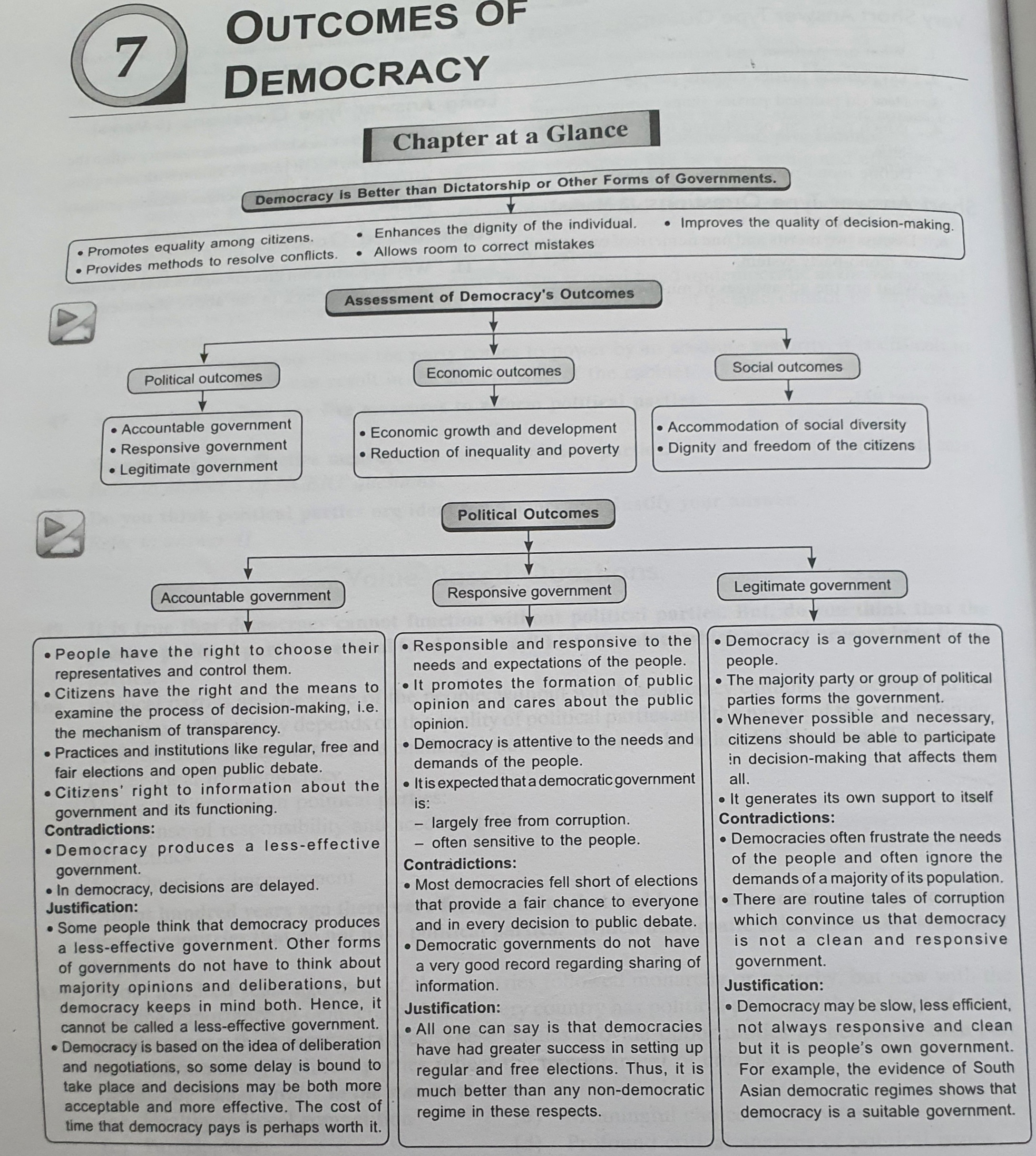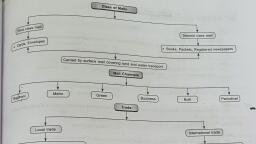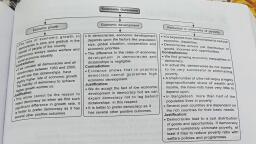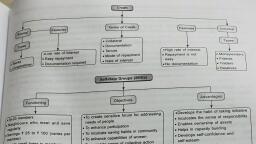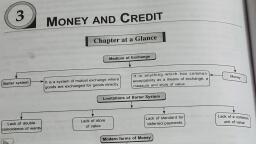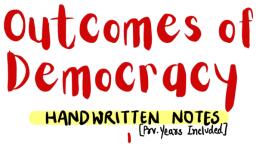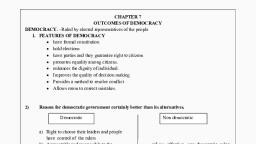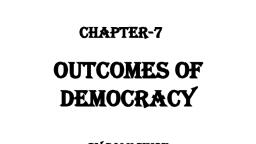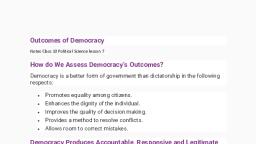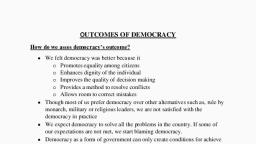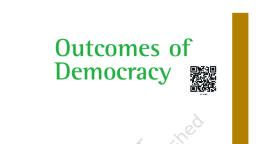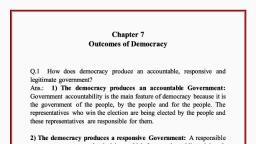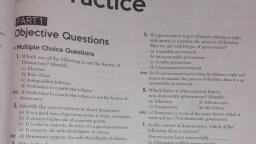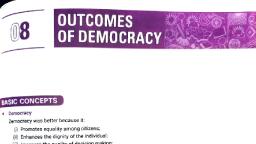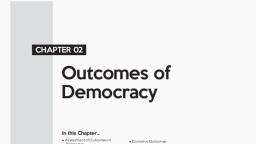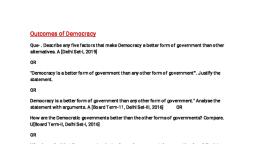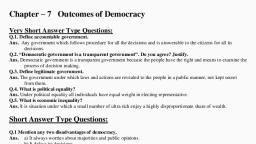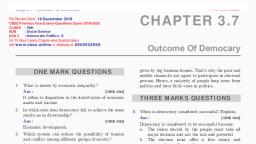Page 1 :
OUTCOMES OF, , DEMOCRACY, , , , , , , , e Promotes equality among citizens., , , , Political outcomes, , e Accountable government, e Responsive government, e Legitimate government, , , , , , , e4, , Accountable government, , e People have the right to choose their, , , , , representatives and control them., , the mechanism of transparency., fair elections and open public debate., , government and its functioning., Contradictions:, , government., , e In democracy, decisions are delayed., Justification:, , Democracy Is Bi, , e Provides methods to resolve conflicts., , e Citizens have the right and the means to, examine the process of decision-making, i.e., , e Practices and institutions like regular, free and, , e Citizens’ right to information about the, , «Democracy produces a less-effective, , e Some people think that democracy produces, a less-effective government. Other forms, of governments do not have to think about, majority opinions and deliberations, but, democracy keeps in mind both. Hence, it, cannot be called a less-effective government., , ¢ Democracy is based on the idea of deliberation, and negotiations, so some delay is bound to, take place and decisions may be both more, acceptable and more effective. The cost of |’, time that democracy pays is perhaps worth it., , , , , , Chapter ata Glance, , etter than Dictatorship or Other Form, , , , , s of Governments., , e Improves the quality of Som |, , , , , , e Enhances the dignity of the individual., e Allows room to correct mistakes, , , , Assessment of Democracy's Outcomes, , e Economic growth and development, e Reduction of inequality and poverty, , e Accommodation of social diversity, , , , , , , , , , , , , , , , , , , , , , , , , , , , e Dignity and freedom of the citizens, , , , Political Outcomes, , Responsive government, , e Responsible and responsive to the, needs and expectations of the people., , elt promotes the formation of public, opinion and cares about the public, opinion., , e Democracy is attentive to the needs and, demands of the people., , e Itis expected that a democratic government, is:, , — largely free from corruption., — often sensitive to the people., , Contradictions:, , e Most democracies fell short of elections, that provide a fair chance to everyone, and in every decision to public debate., , e Democratic governments do not have, a very good record regarding sharing of, information., , Justification:, , e All one can say is that democracies, have had greater success in setting up, regular and free elections. Thus, it is, much better than any non-democratic, regime in these respects., , , , , , , , , , , , , , , , , , , , , , , , Legitimate government, , e Democracy is a government of the, people., , e The majority party or group of political, parties forms the government., , e Whenever possible and necessary,, citizens should be able to participate, in decision-making that affects them, all., , e It generates its own support to itself, , Contradictions:, , e Democracies often frustrate the needs, of the people and often ignore the, demands of a majority of its population., , e There are routine tales of corruption, which convince us that democracy, is not a clean and responsive, government., , Justification:, , e Democracy may be slow, less efficient,, , not always responsive and clean, , but it is people’s own government., , For example, the evidence of South, , Asian democratic regimes shows that, , democracy is a suitable government.
